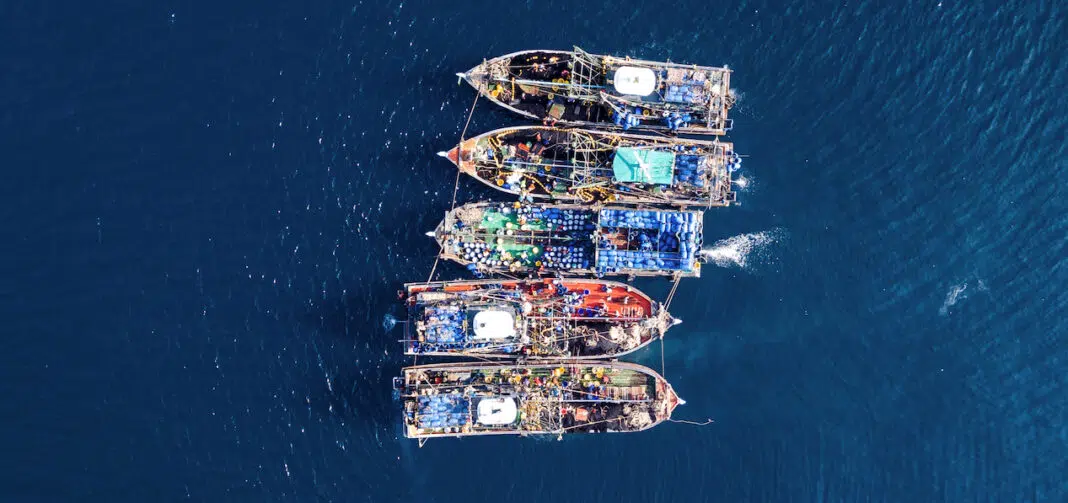The US Department of Homeland Security announced this week it has added seafood to its list of high-priority sectors in the Uyghur Forced Labor Prevention Act (UFLPA).
The UFLPA directs the Forced Labor Enforcement Task Force to block US imports produced from Chinese forced labor. This week’s action shows that DHS is prioritizing the fight against forced labor in the seafood supply chain and will require seafood processors and importers to better document their seafood supply chains.
The latest announcement comes amid extensive reporting of illegal, unreported and unregulated (IUU) fishing and forced labor by Chinese-flagged vessels and in Chinese-based seafood processing plants. IUU fishing can harm ocean health, deplete marine resources, kill wildlife and destroy habitats. It is also explicitly linked to forced labor and human rights abuses.
Last month, DHS announced that a Chinese seafood company had been prohibited from having its products enter the United States.
Following this week’s announcement, Oceana’s Illegal Fishing and Transparency Campaign Director Dr. Max Valentine said:
“The Department of Homeland Security should be commended for taking this crucial step to protect American consumers and ensure our seafood isn’t tainted by human rights abuses. DHS is stepping up in the fight against forced labor in the seafood supply chain, but they cannot do it alone. From blocking forced labor products in the seafood sector, to maintaining the current ban on Russian seafood, none of the government’s lofty goals are possible without enhanced traceability requirements. The National Oceanic and Atmospheric Administration (NOAA) must expand the Seafood Import Monitoring Program to all imported species so American consumers aren’t unwittingly supporting human rights abuses when buying seafood.”

